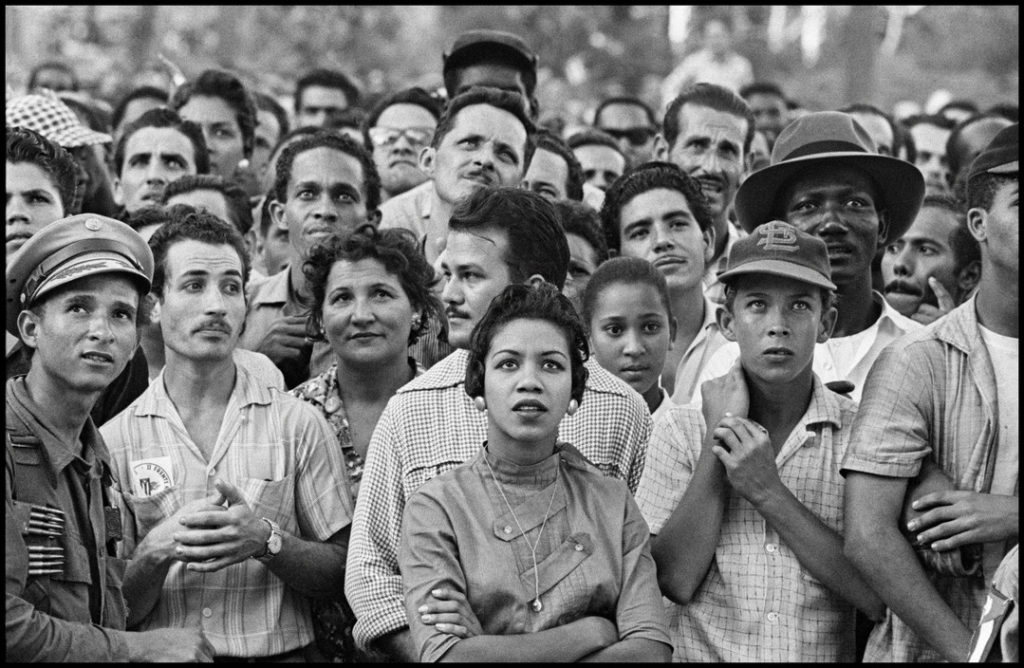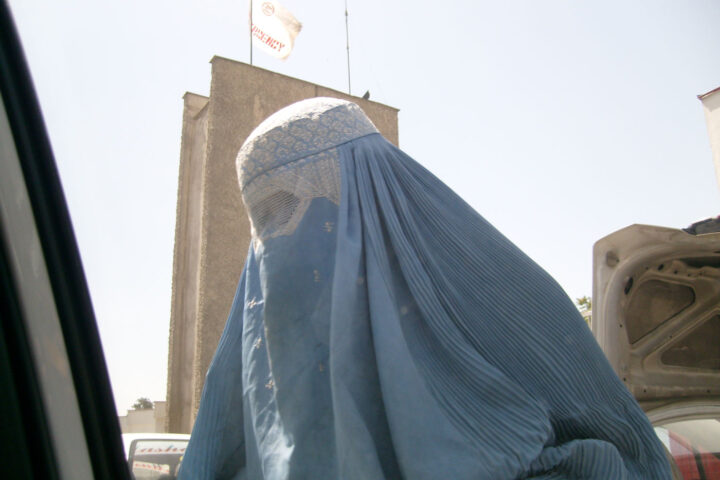"The loss of freedom, the tyranny, the mistreatment, and the hunger would have been easier to bear without the obligation of calling them liberty, justice, the good of the people." Aleksander Wat, My Century
When critics of the Cuban regime – a term understood both in its theoretical dimension, alluding to any institutional political order, and in its colloquial, as a synonym of repressive power – publicly expose their judgments on the negative results of the regime – in terms of suppression of freedoms and socioeconomic backwardness – they are confronted with two types of response.
The first one, clearly political and evocative of the Stalinist legacy, usually accuses them of being ideologically and ethically linked to the darkest causes: ambitious mercenaries, agents of imperialism, fascists, etc. These are easily refutable epithets when the diversity of identities, trajectories, and ideologies of the opponents of Castroism is demonstrated, as well as the reactionary nature of the Castroism itself -in its economically exploitative, culturally conservative, socially exclusive, and politically authoritarian composition.
The second one -apparently neutral and sophisticated- disqualifies the critics from intellectual superiority, pointing out as exaggeration (“there is not so much repression”) or dogmatism (“they repeat the lexicon of the Cold War”) the questioning of the regime and its policies. Protected by an ideological/identitarian configuration overrepresented within the hegemonic lefts of the Latin American academy and intellectuals[1] -and, in a broad sense, Westerners- these retorts are refractory to the truth. They are indifferent to the multidimensional crisis -economic failure, social protests, state repression, and migratory stampede- that has shaken Cuba in the last two years.
It is in response to the despotic affinities of the philo-tyrannical intelligentsia -veiled in its intentions but, regardless of its intentionality, harmful in its effects- that the present text is written.
I begin by acknowledging that I do not write from impartiality. Cuba -its crisis, regime, and destiny- has been a vital circumstance of my existence and of other colleagues. However, taking sides cannot be confused with parochialism. I understand Castroism as a particular form of the totalitarian drift -as an expression of radical evil and total control- of great popular revolutions of the 20th century. It is the only triumphant experiment in this hemisphere but not the only form of contemporary tyranny in the West.
Hence I assume, as a historical fact, the simultaneity of histories and memories of other Latin American peoples, faced with oppressive and criminal forms that deny the human condition. , from systematic repression implemented by the National Security Dictatorships to the necropolitical crimes of the narco that devastate vast areas of the Latin American region.[2] Faced with this reality, the intellectual can recognize the analytical distinctions of the various expressions of political authoritarianism. But this should not translate, ethically, into anything other than a repudiation of the most diverse forms of politically motivated oppression. Whatever the cause (normative or pragmatic) that inspires them and the nature (social or ideological) of their victims.
In the case of Cuba, we are talking about a post-revolutionary regime of Leninist background that shows, for six decades, an ability to manage the revolutionary mythology, face an effective internal repression, and expand its international influence. This makes it an idealized historical case, a replicated state model, and a geopolitical agent that influences regionally and globally.[3] An autocratic trinity that is deployed through a presence extended by temporal duration, as well as geographical reach and penetration into specific societies and groups, such as Latin American politicians, activists, and progressive intellectuals.[4] It is worth illustrating with particular examples how this authoritarian political-intellectual legacy still permeates the discussion on the Cuban reality at the regional level.
Normalizing despotism
Within the group of the three fully autocratic regimes in Latin America (Cuba, Venezuela, and Nicaragua), the symbolic and political hierarchy is noticeable, receiving differentiated treatment in terms of criticism.
Ortega is denounced by the Latin American and Spanish democratic left for his repression of former Sandinista dissident comrades. With less coincidence and forcefulness, Maduro is even questioned using the reports of the UN High Commissioner for Human Rights. To Díaz Canel, if anything, sporadic and generic appeals are made, which make invisible the repressive nature and responsibility of his regime. Metaphorically speaking, Nicaragua appears as a distant and small parish where a crazy priest commits excesses that everyone reproves. Venezuela resembles an archbishopric of average importance, on the functioning of which we can extend specific criticisms. Cuba… is the Vatican, whose sanctity and dogma are unquestionable.
In the various political and academic spaces of the regional left, the influence of the Cuban regime has been present in a palpable but unequal way, being possible to identify two aspects. First, the relationship between national autocratization and the depth and scope of the Cuban regime’s influence is direct; in the Venezuelan case, it has been decisive. Second, Havana’s geopolitical bet seems to go beyond building conjunctural alliances, leading to authoritarian alliances of a much more structural nature, with a vocation for permanence to ensure the survival of its regime.
This attitude is repeated in forums such as the XXXIX Plenary Meeting of the Permanent Conference of Political Parties of Latin America and the Caribbean (COPPAL), which brings together most left-wing democratic parties with their authoritarian Cuban (PCC), Nicaraguan (FSLN), and Venezuelan (PSUV) counterparts. In dealing with the Cuban case, in a recent declaration focused on the discourse of state sovereignty and non-interference, it limits itself to request the end of the U.S. embargo. This would not be reprehensible if it were accompanied -as would correspond to democratic leftist formations- by a symmetrical demand for respect for the popular sovereignty violated by the Cuban autocracy.
For its part, the so-called Puebla Group has denounced the right-wing’s authoritarianism but maintains its support to the governments of Daniel Ortega and Nicolás Maduro, cloaked in the discourse of national sovereignty. Likewise, the generic expression of solidarity with the Cuban people -recognizing the existence of the unrest and the historic mobilizations of last July 11- was made but making invisible the repression unleashed by the regime in Havana. Such repression has reached record levels on a regional scale in 2023, with more than a thousand prisoners and those prosecuted for political reasons. Similarly, the founding announcement of the Observatory of the Progressive International -which includes new leftists, mainly from the West- did not show any concern for the disappearance of democracy in Nicaragua or Venezuela. Much less for its non-existence in Cuba.
On the other hand, from academia, we see calls such as that of the Maria Sibylla Merian Center for Advanced Latin American Studies in the Humanities and Social Sciences (CALAS) to study Authoritarianism in Democracy. Transregional and historical perspectives on disputed spaces also makes no mention of the more structural records of autocratization in the region belonging to the illiberal left. Consulted by the author, participants in the Forum alleged that these were “authoritarian processes in gestation within existing democracies,” which would justify the exclusion of the regimes in Caracas, Managua, and Havana. However, the final program included references (papers) to Nicaragua and Venezuela but not to Cuba. Demonstrating a discretionary decision, not justified by analytical criteria, on the supposed exceptionality of the Cuban case.
If we look at the events, documents, and public pronouncements of the Latin American Council of Social Sciences (CLACSO), the Cuban crisis -including the widespread protests of July 11 and 12, 2021, as well as its repression- is conspicuous by its absence; generating rejection within the regional academic community. When it is alluded to, in tune with the official narrative in Havana, it is to denounce the “imperialist blockade” and celebrate the links with political and academic authorities on the island. The subjects, discourses, conflicts, and processes that confront this vision are made invisible by the entity that brings together the region’s most significant number of social sciences and humanities research and teaching centers.
As Timothy Snyder has recently recalled, in his critique of Habermas’s position on the invasion of Ukraine, “once we understand the power of discourse, we understand the power of those who, for example, respected moral authorities, police their boundaries, manipulate historical memory, and exclude the voices of the vulnerable.”[5] The vigilant attitudes of dogma, manipulating reality and excluding solidarity with the oppressed of Cuban authoritarianism, are still in force in a sector of Latin American academia. This has a negative impact on multiple levels.
First, it weakens the democratic convictions of the citizenry by introducing a partisan relativism that can be reproduced, thanks to polarization, at various levels and ideological poles, strengthening the authoritarian atavisms of each society. Second, it fortifies the regional processes of autocratization: many who, from the left in Venezuela or Nicaragua, applauded or kept silent in the face of the abuses of the Cuban regime were subsequently persecuted once authoritarianism was imposed in their countries. Thirdly, by contributing to the tribalization of political debate and blocking communication channels with other political and social forces, it destroys the common ground that existing democracy requires to consolidate itself.
A change under construction
The inability to assume the authoritarian character of the regime that reigned in Cuba since 1959 has made it possible for its influence on different progressive movements not to be blocked by the democratic left. Mental laziness, party complicities, or nostalgia for old militancy are not enough to justify the denial of much of the regional left in the face of the systematic violation of human rights on the island. Critical views from the intellectual and activist left are still received with reservations and rejection within the progressive field. [6]
Double standards seem to be maintained so as not to make the tribe itself uncomfortable, avoiding critical accusations or, in extremis, the accusation of treason. This is not limited to the political forces, as it extends to a good part of the related academia. It reaches the point where the decolonial turn and the critique of Eurocentric knowledge have been used to justify or deny the existence of autocratization processes when these are developed by a government that claims to represent “progressive causes.”
It is necessary to construct the critique of this philo-tyrannical reason (Mark Lilla dixit) through a dual resistance: to the ideological and affective defects of the past and to the present political influence of (late) Castroism. The silences, half-truths, concealments, and deceptions that the region’s leftists dispense to their critical peers on the island and, in general, to the entire population are expensive. They impact thousands of concrete existences, forced into prison or exile. They compromise the future of the Cuban nation, leaving the banners of solidarity in the hands of the right alone. Moreover, they hamper the future renewal of the causes and methods that the left claims to defend.
Notes
[1] I have previously addressed this issue -and some of the ideas developed in this text- in Armando Chaguaceda and Ysrrael Camero, La promesa Boric y el desafío de las izquierdas latinoamericanas, Astrolabio. Revista Internacional de Filosofía, June, Number 25, Barcelona, 2022.
[2] For a pondering of the differences between the oppressive ways in which political and criminal powers prey on the populations under their domination see Andreas Schedler, En la niebla de la guerra. Los ciudadanos ante la violencia criminal organizada, Centro de Investigación y Docencia Económicas, CDMX, 2015.
[3] For an approach to the Mexican case see Armando Chaguaceda and Johanna Cilano, El elefante en la habitacion: Cuba en el Mexico de la 4T, Letras Libres, No 284, August, 2022.
[4] See El Estado cubano y la academia latinoamericanista, Revista Iberoamericana, University of Pittsburgh, Vol LXXXVI, No. 270, January-March 2020, Pages 343-358.
[5] FAZ.NET. (2022, June 27). Jürgen Habermas and Ukraine: Germans have been involved in the war, chiefly on the wrong side. FAZ.NET; Frankfurter Allgemeine Zeitung. http://bit.ly/3Xo5mpn
[6] See in this regard the books by Hilb (Silencio Cuba. La izquierda democrática frente al régimen de la revolución cubana, Edhasa, Buenos Aires, 2010), Liscano (Cuba, de eso mejor ni hablar, Editorial Fin de Siglo, Montevideo, 2022) and Uzcategui (La rebeldía más allá de la izquierda. Un enfoque post-ideológico para la transición democrática en Venezuela, Náufrago de Itaca Ediciones, Caracas, 2021).





